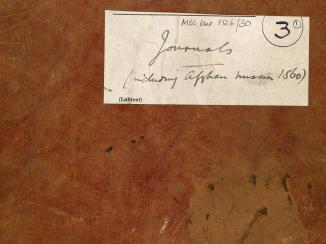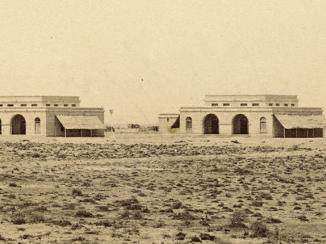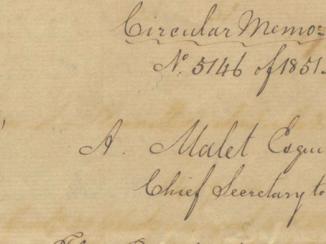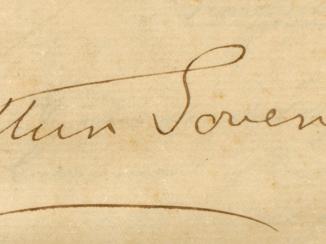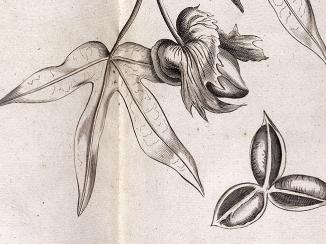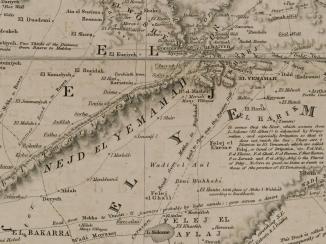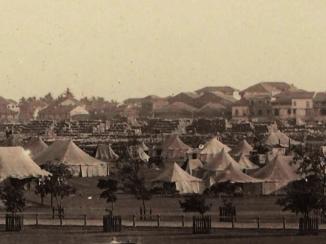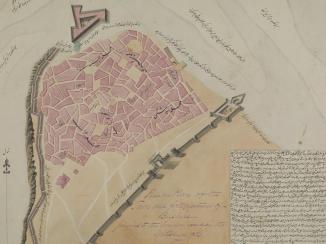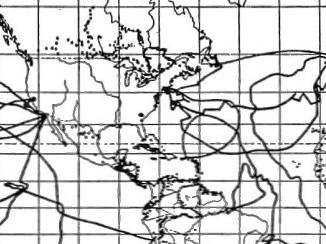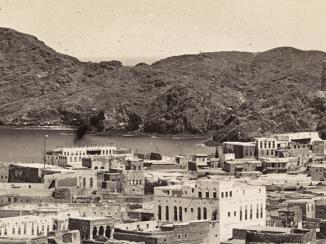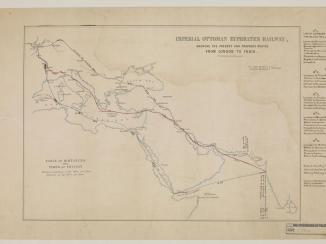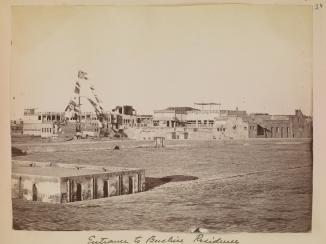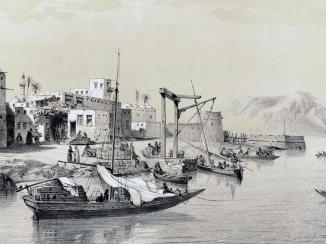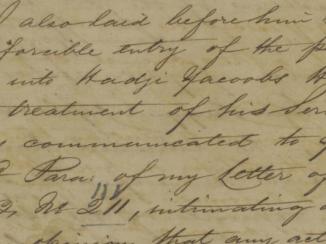Overview
‘What can I buy from the current post holder?’ This was usually the first consideration of any new appointee – or their wife – to a political post within the British Empire.
Although Political Agents and Residents were generally provided with a home, they were expected to furnish them themselves. The easiest way of doing this was to purchase the furniture, stores and other supplies the previous Agent or Resident was willing to sell.
Not least Lewis Pelly, one of the most important British Political Residents in the Persian Gulf The historical term used to describe the body of water between the Arabian Peninsula and Iran. (1862–73) whose next posting was in Rajputana (present day Rajasthan, India). In 1874, when Pelly was departing this post as the Agent to the Governor-General he provided his successor, Sir Alfred Charles Lyall, with a comprehensive twelve-page list of all the belongings and stores available for purchase, should Lyall and his wife be interested.
Residency Furnishings
Many of the items on the list were furnishings considered necessary for a Political Agent A mid-ranking political representative (equivalent to a Consul) from the diplomatic corps of the Government of India or one of its subordinate provincial governments, in charge of a Political Agency. to live comfortably and to entertain guests, such as crockery, dinner services, cooking utensils, tables, chairs, book-shelves and rugs and carpets. Some of the more unusual items on Pelly’s furniture list included a piano, a billiard table, a photographic apparatus, a telescope, shades and other apparel for five chandeliers and even the chimney!
There was also a section of the list devoted to framed pictures, which included pictures of Her Majesty Queen Victoria and the Prince of Wales (later Edward VII).
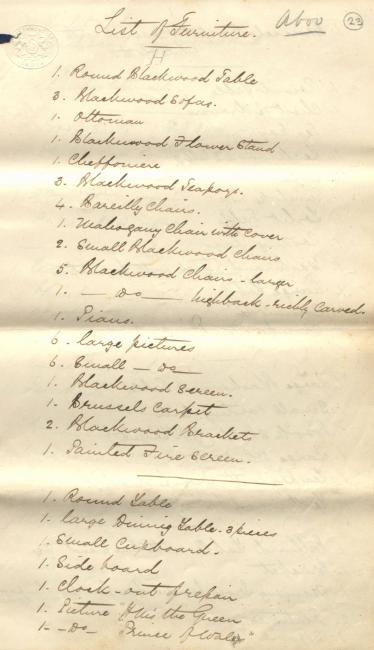
Camping Supplies and Provisions
Other essential items were furnishings necessary for travel including camping supplies such as boxes, trunks and food stores. Far from today’s folding furniture, a British official of Pelly’s stature required sofas, an armchair, three different types of table and a portal bathtub. These were also offered to Lyall for sale.
A good store cupboard of food was essential, so tinned fruit and vegetables, sardines and herrings, were offered alongside ox tongues and pigs’ cheek. A vast array of condiments and sauces including anchovy sauce, chilli sauce, salad oil and mushroom catsup (ketchup), provides a hint at Pelly’s palate.
Entertaining
The most intriguing aspect of these lists were the parts devoted to entertaining. The collection of drinking glasses that a resident appears to have required include: ‘Beer tumblers, Champagne classes, Claret glasses, Wine glasses, Liqueur glasses, Soda water glasses and Finger glasses’.
The glasses were used for Pelly’s extensive collection of wine and spirits. His list included fourteen different types of red & white wine amounting to thirty-eight dozen bottles. The liqueurs’ list was equally extensive covering grand chartreuse, vermouth, whisky, cherry brandy and curacao. There was, of course, a copious amount of beer, too.
A separate list was supplied of ‘boxed wines and spirits’ for use in camp which amounted to a further twenty-two dozen wines, three dozen beers and spirits including sherry and port.
While posted to places as far from Britain as India and the Gulf, the climate may have been difficult for Agents and Residents to endure, but at least they could always rely on comfortable furnishings to remind them of home, as well as other, more intoxicative comforts.

